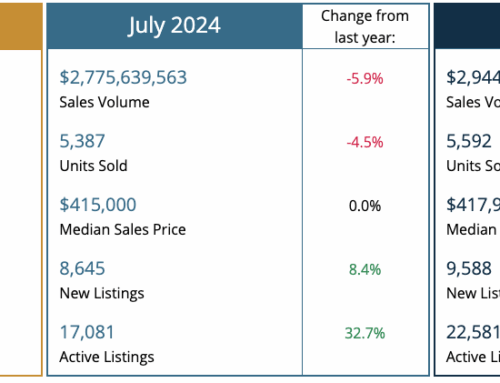
Your Home is Under Contract—Now What?
Your Home is Under Contract—Now What?

Hand with marker written question on whiteboard
A Seller’s Checklist
Congrats! Your home is under contract. That’s a big milestone in the selling process—but let’s be honest, it can feel overwhelming too. The good news? Most of the heavy lifting now falls on the buyer, but you’ve still got a few key things to keep on your radar. Knowing what’s expected (and when) helps avoid last-minute stress and keeps things moving smoothly.
Here’s your checklist for what happens once you go under contract:
1. Escrow Deposit (Also known as Earnest Money)
One of the first steps for the buyer is to put down their earnest money deposit (escrow). Sometimes it’s delivered with the offer, other times shortly after. Either way, your agent should confirm those funds made it into escrow and get a receipt from the closing attorney or brokerage. That deposit is what secures the buyer’s intent to close—so you want to make sure it’s handled quickly.
2. The Home Inspection
Next up: inspections. This is the buyer’s chance to dig into the condition of your home. You don’t need to be there, but make sure pets are secured and the house is accessible. If repairs come up, this is another negotiation in the whole sales process. You will get an Amendment To Address Concerns With The Property, which will list out what the Buyer wants you to repair, replace or both. Once we agree on this step and you do agree to repairs, don’t drag your feet—licensed contractors book up fast, and waiting until the week before closing is a recipe for delays.
3. Appraisal
If your buyer is financing, an appraisal is required. Think of it like “picture day” for your home—you want it looking its best. The appraiser’s job is to determine whether the agreed sales price matches market value. Your agent should attend the appraisal, provide comps, and highlight any upgrades you’ve made.
4. Mortgage Commitment (Also called the Financing Contingency)
This is the big one. At some point (outlined in the contract), the buyer’s lender has to issue loan approval. Until that commitment date arrives, the sale isn’t locked in. Your agent should be in regular contact with the lender to confirm milestones: application completed, appraisal in, underwriting underway, etc. You’ll want updates until that commitment letter is in hand.
 5. Plan Your Move
5. Plan Your Move
Don’t wait until the last week to figure this out. By the time you list your home, you should have a rough moving plan—DIY, storage pod, or full-service movers. Once you’re under contract, start scheduling. Moving companies and rental trucks book up fast, and scrambling at the last minute will add unnecessary stress.
6. Utilities & Services
Keep your utilities on until after closing. The buyer will need water, power, and gas for their final walkthrough. Cable, internet, and streaming services you can cancel whenever you’re ready. If you are selling a condo, services like water don’t get turned off. Many buildings are sub-metered to charge for the water, but it does not have to be turned on and off. Before closing day, call your utility providers and schedule shutoff dates for the day after closing—just in case things get pushed by 24 hours.
7. Celebration Day!
You’ve made it. Depending on the circumstances, you may:
-
Pre-sign documents a few days before, or
-
Sign at the table with the buyer.
If you’ve already moved out of town, a “mail-away” closing can be arranged, where paperwork is sent to you in advance. Either way, this is the finish line—you sign, they sign, and funds are transferred.
8. Change of Address
Don’t forget the basics. File a change of address with the USPS, update your driver’s license, and notify banks, credit cards, and subscriptions. It’s also smart to send friends and family a quick note with your new address so things don’t get lost in the shuffle.
✅ Bottom Line: Once your home goes under contract, most of the work shifts to the buyer, but staying proactive on your end makes sure nothing slips through the cracks. With the right plan—and a good agent tracking deadlines—you’ll be walking out of closing stress-free.














